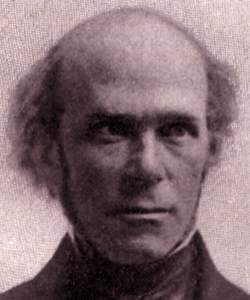Theodore Parker (American National Biography)
Scholarship
His role of controversial thinker easily led to that of radical social reformer, becoming a provocative gadfly in debates concerning the most pressing issue of his day, slavery. Often intemperate in speech and manner, for fifteen years he embodied militant Christian philanthropy. As a result of his sermons on the subject, many people, including Julia Ward Howe, were converted to the abolitionist cause. Parker's convictions and moral earnestness made him increasingly strident on this issue and kept him in the forefront of radical political activism.
In 1850 Congress passed the Fugitive Slave Act, which allowed slave owners or their representatives to enter free states in the North, capture runaways, and return them to slavery in the South. Parker was inflamed by such a miscarriage of justice. Thereafter he served on Boston's Committee of Vigilance, which sought to help escaped slaves. He worked with the New England Emancipation Aid Society for the same purpose. While protecting fugitive African Americans in his own home, he urged citizens to resist any human legislation that violated the higher moral laws. Because of these convictions, Parker was particularly successful in helping William Craft and Ellen Craft, two of his parishioners, to escape the clutches of slave catchers from Georgia. He served on the Massachusetts Kansas Committee when proslavery and antislavery factions met in bloody confrontation on the western plains. In addition to those mild acts of zeal, he was also a member of the secret committee that abetted John Brown and his plans for armed insurrection.
In 1850 Congress passed the Fugitive Slave Act, which allowed slave owners or their representatives to enter free states in the North, capture runaways, and return them to slavery in the South. Parker was inflamed by such a miscarriage of justice. Thereafter he served on Boston's Committee of Vigilance, which sought to help escaped slaves. He worked with the New England Emancipation Aid Society for the same purpose. While protecting fugitive African Americans in his own home, he urged citizens to resist any human legislation that violated the higher moral laws. Because of these convictions, Parker was particularly successful in helping William Craft and Ellen Craft, two of his parishioners, to escape the clutches of slave catchers from Georgia. He served on the Massachusetts Kansas Committee when proslavery and antislavery factions met in bloody confrontation on the western plains. In addition to those mild acts of zeal, he was also a member of the secret committee that abetted John Brown and his plans for armed insurrection.
Henry Warner Bowden, "Parker, Theodore," American National Biography Online, February 2000, http://www.anb.org/articles/08/08-01925.html.



